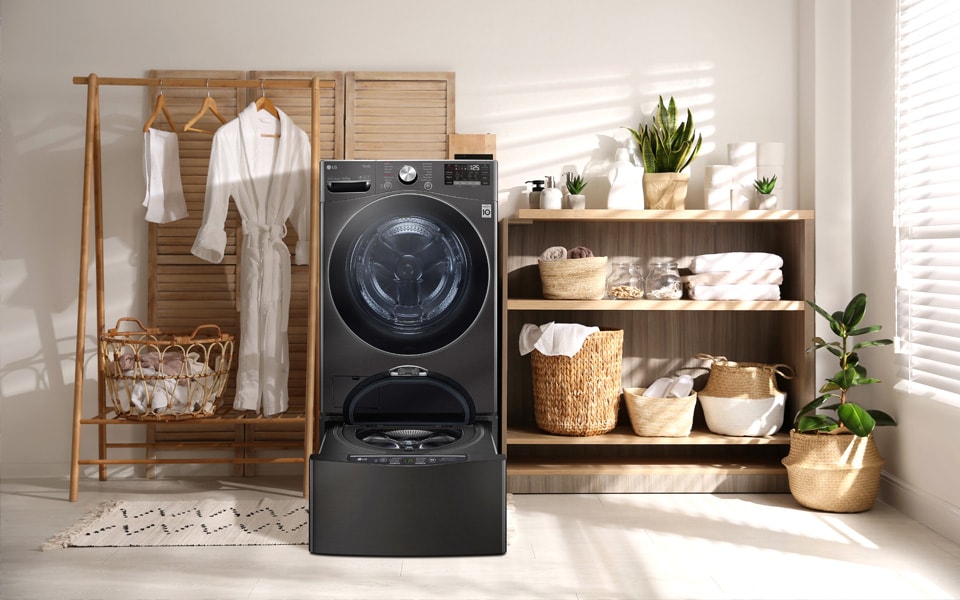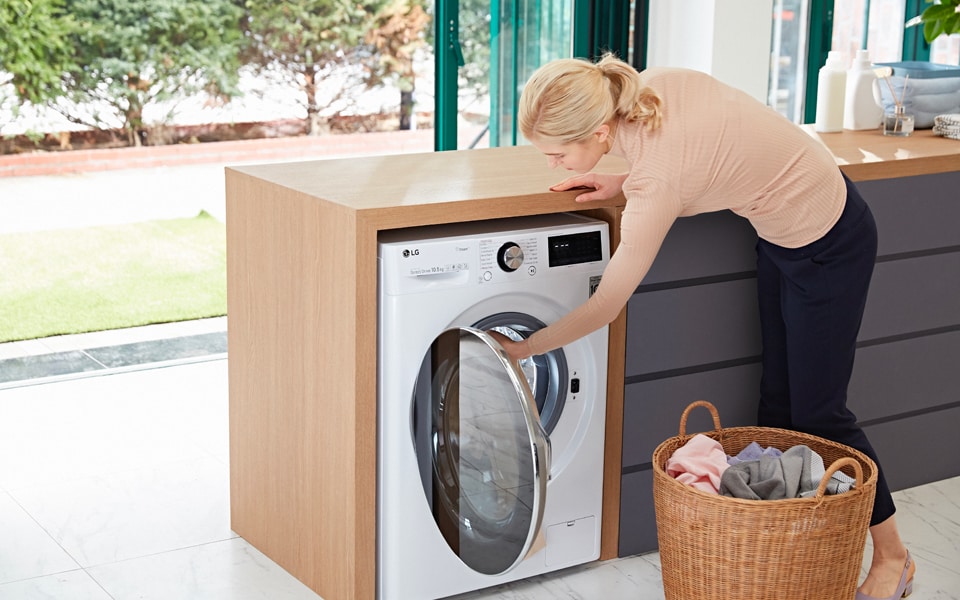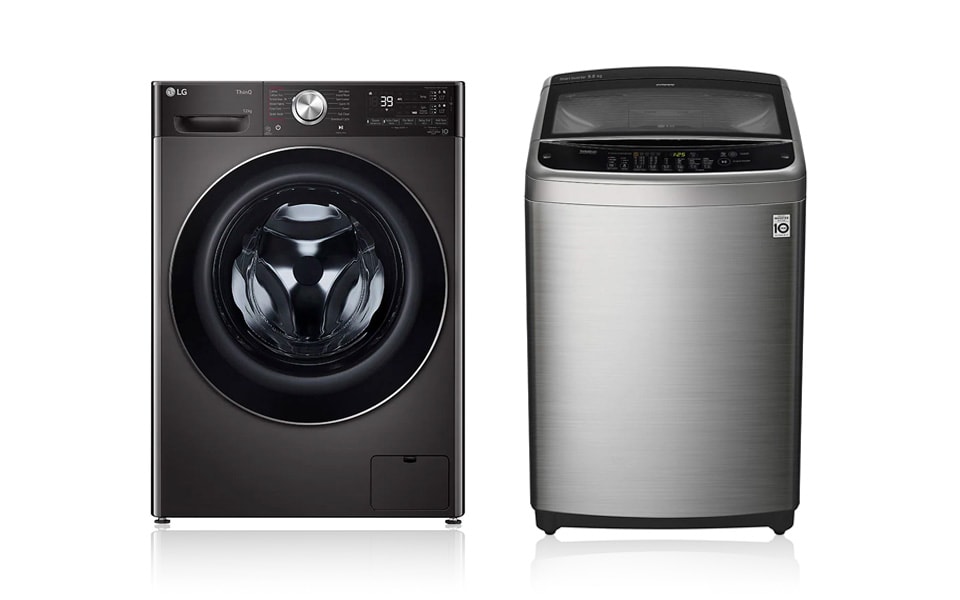Laundry Tips: How to Use Your Washing Machine
1st November 2022

Whilst many of us use our washing machines every day or so without giving it much thought, there are lots of laundry hacks out there that you may not know about – and these things can help make washdays easier. Make light work of your laundry with these useful tips, and find out how to properly load your machine for the best possible clean.
Laundry Tips and Tricks to Get You Started
These handy hacks will help you to avoid any laundry mishaps.
1: Choose your laundry detergent carefully
Today, there are plenty of different laundry detergents to choose from, but you shouldn’t just go for the cheapest one. Consider your household needs when selecting a detergent: think about how soiled your clothes generally get, and whether you or anyone else in your household has skin sensitivities.
Below you’ll find an overview of the most common types of detergent on the market:
- Powdered detergents are fine for general loads, but they don’t always dissolve fully in cold washes, meaning they can leave a white residue on fabrics. However, powder detergents are generally cheaper to buy and come in large boxes, so one box usually lasts for a while. If you don’t live close to a shop or budget is a concern, powdered detergents may be best for you.
- Liquid detergents are usually better at removing stains than laundry powder, because liquid cleaners contain enzymes that can penetrate and break down stains on clothing. If your clothes are usually fairly soiled – perhaps you have young children at home – a liquid detergent will be best.
- Single dose pods and tablets are convenient, but they’re more expensive than liquid and powdered detergents, so they may not be the best option if you’re on a tight budget.
- If you or someone in your household has sensitive skin, you should choose an unscented or non-bio laundry detergent. Non-bio detergents don’t contain the same enzymes found in other types of laundry cleaner, so they’re kinder to sensitive skin.
2: Don’t use too much laundry detergent
It may be hard to believe, but using more detergent in a wash doesn’t mean you’ll get cleaner laundry. In fact, using too much of the stuff can leave a residue on clothes, and make them feel stiff or scratchy. It can also make clothes appear dull, and adds to the wear and tear of garments. For average loads, you shouldn’t need more than a tablespoon of detergent; two tablespoons will suffice for extra-large loads.
Some of our washing machines come with an ezDispense® feature, which senses the load size and automatically releases a predetermined optimal amount of detergent – taking the guesswork out of how much to add to a cycle.
3: Prepare your loads properly
By taking the time to properly prepare your clothes for the wash, you’ll avoid any potential laundry disasters and get a more thorough clean.
If you’ve ever turned your favourite white shirt pink and traced it back to a stray red sock, you’ll know how important it is to organise your loads by colour. Double check what’s going into a wash before you turn on your machine to prevent colour bleeding between garments. Dark garments should be washed inside out to prevent the colour from fading.
You should check the pockets, too, and make sure the zips on your jeans and other garments are fastened; don’t fasten buttons though, as this can loosen the threads and stretch out buttonholes.
Lastly, any delicate items – including lingerie and fine knitwear – should be laundered in zipped mesh bags. Mesh laundry bags are also great for washing pairs of socks, so that they don’t get separated and lost.
4: Treat stains immediately
Stains happen, but the earlier you treat them, the more likely they can be removed. Rinse or soak the stained garment in cold water as soon as you can and apply a stain remover. For stubborn stains, soak it overnight before popping it in the washing machine (again, use a stain remover in the wash). If the stain is still there, don’t put the garment in a clothes dryer: heat sets stains into fabrics. Instead, wash it again and apply more stain remover.
5: Clean your machine
You should clean your washing machine regularly to make sure it continues to perform at an optimum level. After all, you can’t expect a dirty machine to give you clean clothes.
Selected LG washing machines come with a ‘Tub Clean’ cycle, which you should run once a month to remove any residue or a buildup of detergent. If your washing machine doesn’t come with this feature, you should still wipe down the drum and run an empty hot cycle every so often. For more information on how to clean your washing machine, take a look at our buying and maintenance guide.
6: Use the right setting
The best way to avoid any pitfalls when doing your laundry is to make sure you’re washing everything on the most appropriate setting. If you’re wondering which wash cycle to select for a load, take a look at our washing machine buying guide. Here, you’ll find more information about the different programs that are available on LG washing machines.
Light or regularly soiled clothes can usually be washed at cooler temperatures. In fact, it can be better for them: hot washes can cause shrinking and generally add to the wear and tear of garments. Cold washes are also more energy efficient, which is better for the planet and for your purse.
Having said that, if you notice that your white clothes aren’t looking as white as they once did, it may be because you’re washing these at temperatures that are too cool. Dirt and stains are more visible on white garments, and hot washes are generally better at removing these.
Drying Your Clothes: Why Do Clothes Shrink in the Dryer?
High temperatures and the agitation of clothes in the washing and drying process can constrict or distort fabric fibres, causing garments to shrink.
As such, you should take note of the settings on your clothes dryer too. Generally speaking, delicate fabrics shouldn’t be tossed in the tumble dryer. You should always read the care label on any garment before drying it this way, and air-dry clothes whenever you’re unsure.
If a garment does shrink in the wash, you can try soaking it in lukewarm water with a dash of baby shampoo to relax the fibres, this can help stretch it back out. But of course, it’s best to avoid shrinking anything in the first place!
How to Properly Load a Washing Machine
Get the best possible clean from every cycle by finding out how to load your machine properly. Here’s a step-by-step guide to loading a washing machine, whether you have a front loaderor a top loader
1: Sort your laundry
As we mentioned above, this step is crucial if you’re to avoid any laundry missteps. Start by sorting your loads by colour: whites, lights, darks and delicates should be washed separately. Double check the care labels on your garments to make sure they can be machine-washed, and take out any items that need hand washing or dry cleaning.
2: Select the right wash cycle and temperature
When setting a wash cycle and temperature for a particular load, you’ll need to think about how soiled those garments are, and the fabrics that these garments are made from. If you’re washing delicates versus something made from cotton (which can usually withstand higher temperatures), you’ll need to select a gentler cycle at a cooler temperature.
Warm washes are better for moderately or even heavily soiled items, but you should always pre-treat stains if you’re washing clothes that are visibly dirty. Hot washes can be used to sanitise garments and kill bacteria, so these cycles are better for towels and bedding; you can also wash sturdy fabrics or very soiled items on hot washes, providing that you’ve read the care label and know that they can cope with high temperatures.
3: Add your detergent
Next, you’ll need to add your detergent. Front loader washing machines have a detergent drawer, which is typically found at the top of the machine. With Top loader washing machines, check your user manual if there is a detergent dispenser drawer or if you’re unsure where to add the detergent. Normally where there is no detergent dispenser drawer, you simply add your detergent to the drum.
4: Load the washing machine
When putting your laundry into the machine, you’ll need to make sure you don’t overload the drum. When there are too many garments in a washing machine at one time, the water can’t circulate properly, so your clothes won’t be thoroughly cleaned. Overloading also puts pressure on the motor, which can damage the washing machine itself. Clothes should spin in a way that allows the water and detergent to move freely and evenly through each garment.
5: Turn it on
Now all you need to do is close the door and hit the ‘Start’ button. Once a cycle is complete, empty the drum and leave the door open for some time to air it out and dry.
With our washing machines, you can enjoy clean and fresh laundry – even on a cold wash. Discover the full range of LG washing machines online, including our innovative LG TWINWash® and WashTower™ machines.
Life's Good!






